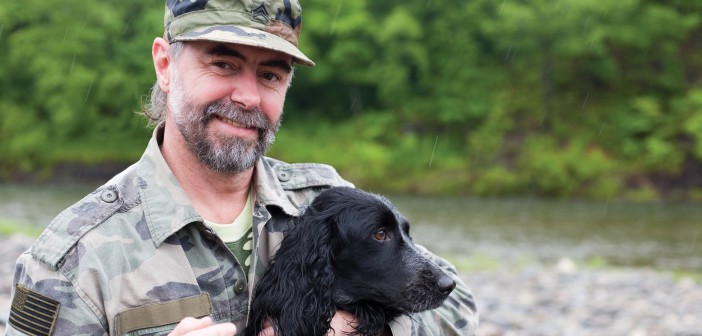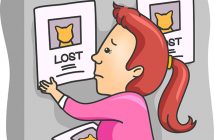Adoptable Pets
According to the American Humane Society, every year a staggering three to four million healthy, adoptable pets are euthanized at shelters across the country. The good news is the number is down since the spay/neuter campaigns began a few years ago. However, that’s still not good enough. These animals could have become excellent companions, but they didn’t get the chance.
Returning Veterans
Sadly, many of our returning military veterans are having a difficult time transitioning back into civilian life and need some extra help recovering, especially if they are coming from tours of duty in combat zones. Many suffer from Post-Traumatic Stress Disorder (PTSD) with full-blown depression, often leading to a downward spiral of unemployment, broken relationships, and addictions.
The Human-Animal Bond
Researchers are exploring the health benefits associated with the human-animal bond. Unfortunately, there have only been a few controlled studies. In those studies, several showed that people who regularly walk their dogs are more physically active and less likely to be obese. Also, the dog invites conversation with others, as people can’t help but make a comment or ask questions about the dog, creating social interaction. Often, these casual encounters lead to friendships. People with more social relationships tend to live longer and are less likely to show mental and physical decline as they age.
Studies of cat companions show that stroking their fur helps to lower blood pressure, decreases patient anxiety, increases sensory stimulation, wards off depression, inspires a sense of purpose, and helps people relax. Nursing homes using animal therapy reported that pets have a positive effect on patients. The animals help patients to be more alert, produced more smiles, and the presence of the pets helped the physically aggressive patients calm down.
Pets for Vets
Animal trainer, Clarissa Black, with a Bachelor of Science in Animal Science and a Masters in Anthrozoology, wanted a “way to say thank you to our country’s heroes.” She believes companion pets will be the lifesaving therapy or friend many returning service men and women need. She created the nonprofit organization “Pets for Vets” (http://www.pets-for-vets.com) where returning veterans suffering from PTSD and shelter animals awaiting euthanasia will all benefit.
This is truly a win-win situation. Professional trainers teach the animals good manners so they will fit into the veteran’s lifestyle and help the veteran with physical and mental health challenges. Depending upon the veteran’s situation, animal training might include desensitization to wheel chairs or crutches, as well as recognizing panic and anxiety disorder behaviors.
The Healing Connection
From the cobblestone streets of Portland, Maine to the palm tree neighborhoods of Los Angeles, veterans are thanking Pets for Vets for giving them a lifelong friend. The companion pet has a calming, serene effect that is keenly in-tune with human emotions at times of loss, hardships, illness or other challenges. She has the ability, not only to sympathize, but to help the veteran heal. The veteran receives daily showers of uncomplicated love, learns how to heal emotional wounds, and experiences a heart filled with new meaning and purpose. The companion pet helps the veteran to feel better, physically and spiritually.
By Mona Mistric




